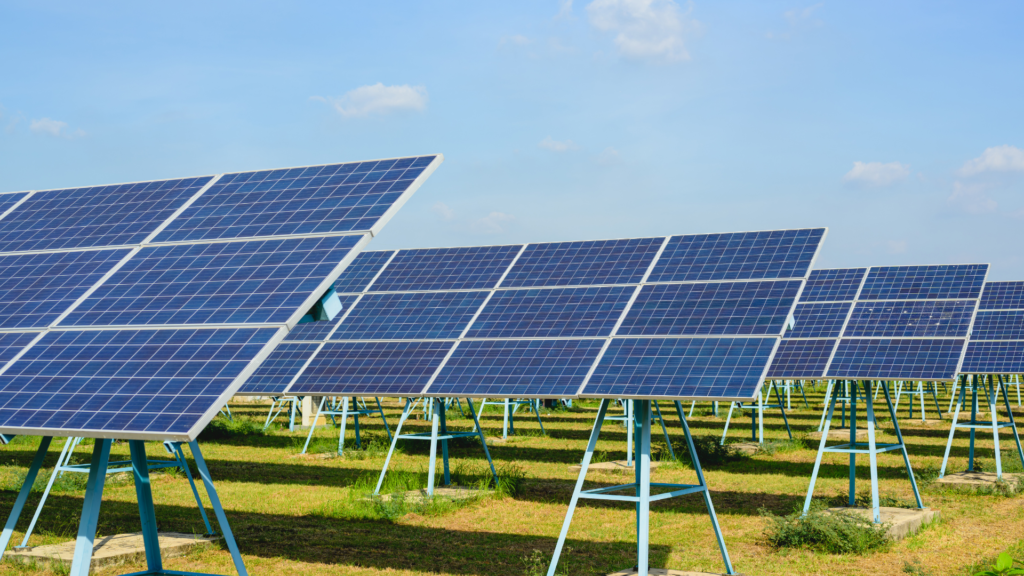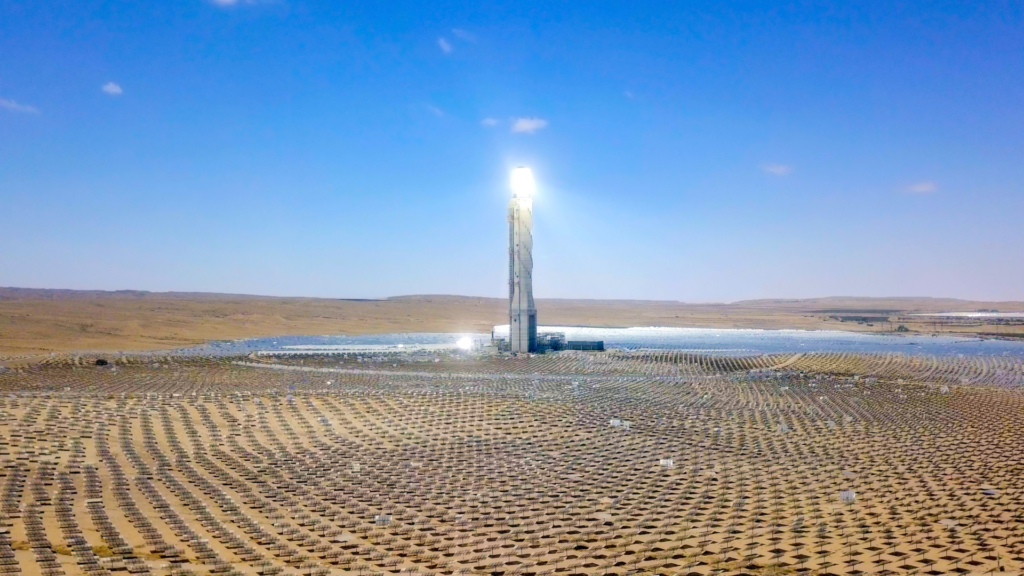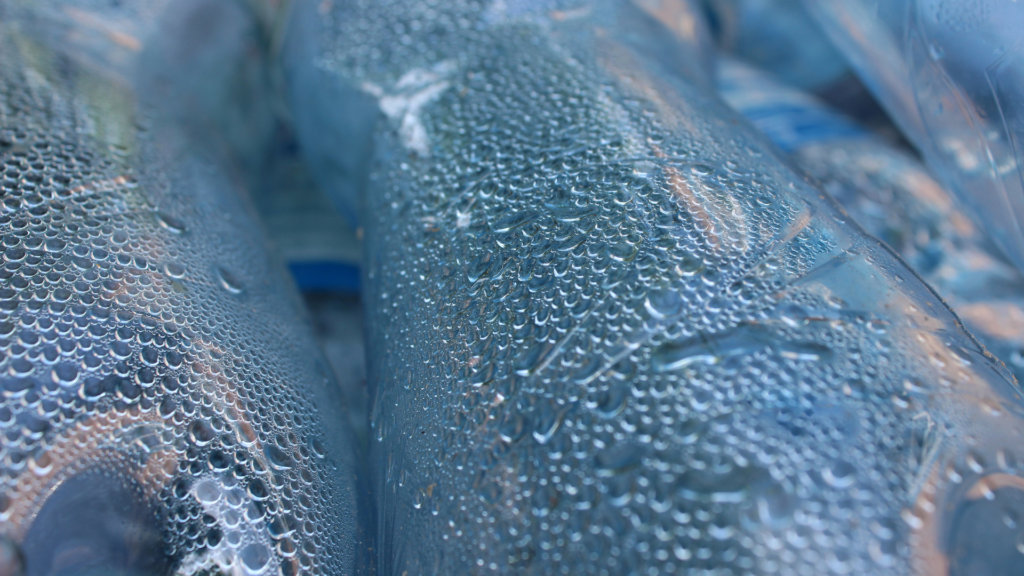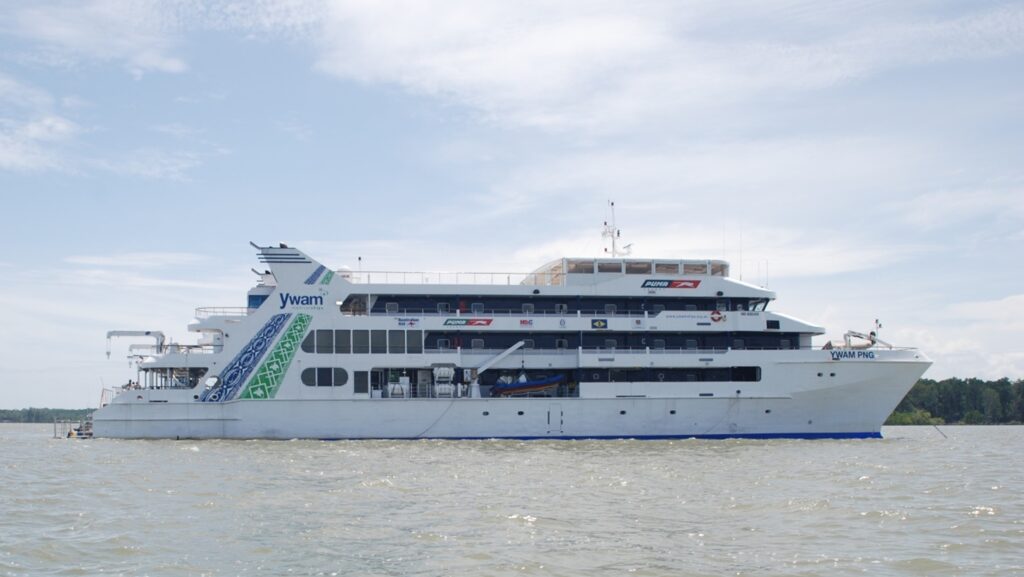With increasing populations, less consistent rainfall and groundwater extraction exceeding recharge rates, the use of desalination is increasing worldwide. Desalination, particularly seawater desalination, is an attractive option as there is a large volume of seawater that is largely untapped for providing drinking water. However, seawater desalination does come with a high energetic cost. Due to the large energy requirement, a range of solar powered desalination technologies have been developed which harness solar energy in different ways.
Photovoltaic Power
Photovoltaic (PV) panels convert sunlight directly into DC electricity. The generated DC power can be used to charge batteries, directly power DC motors or can be used to delivery AC power via inverters. Reverse Osmosis is the most widely used seawater desalination system in the world as it has the lowest energy requirement of available, mature technologies. As Reverse Osmosis systems require consistent power to deliver consistent quality permeate, solar PV systems which power Reverse Osmosis systems often have battery backups to ensure consistent supply. The power generated by solar PV can also be used to power other water treatment such as electrodeionisation to polish Reverse Osmosis permeate for ultrapure water applications.
Photovoltaic power is cheap and easy to install in remote locations so matches well with off-grid water treatment systems. Photovoltaics have low daily power availability (due to the sun not shining) and larger PV arrays can require extensive land areas.

Concentrated Solar Power
Concentrated solar power works by collecting the suns rays and reflecting them onto a receiver which contains a working fluid. The working fluid will be heated to 500-1000 °C. The working fluid is then used to generate steam to run a turbine and produce electricity. This electricity can be used in a similar fashion as electricity generated by photovoltaics to power water treatment systems. The steam generated by the working fluid can also be used to heat seawater for treatment by multiple effect distillation (MED) or multi stage flash (MSF) thermal desalination processes.
Concentrated solar power facilities have the ability to store excess thermal energy for use when the sun is not shining (similar to a battery in a photovoltaic setup). Concentrated solar power is also a more consistent source of power than photovoltaics, with less variation during generation. As it is a thermal based process, concentrated solar power works better at higher temperatures. Photovoltaic panels on the other hand, lose efficiency at higher temperatures. The main drawbacks of concentrated solar power are the large footprint, the complexity of construction and the higher capital costs when compared with other renewable energy systems.

Passive Solar
Passive solar water treatment uses solar radiation to produce water vapour which is then collected in a condenser. These systems are also known as humidification dehumidification systems. The most common types of passive solar water treatment systems are solar stills. These systems consist of a container of contaminated water covered by a transparent sheet. The solar radiation produces water vapour from the water which condenses on the transparent sheet. The purified water, now liquid again, is collected for use. Solar stills can produce around 6 L of purified water per square meter of transparent sheet. The production volume which also vary due to local solar irradiation. These systems are cheap, durable and easy to maintain. The main drawback of solar stills is the low volume of purified water per footprint. Because of low volume production, solar stills are mainly used in emergency or low resource context situations.
Humdification dehumidification systems include:
- Fog harvesting systems (which condense and collect water vapour in foggy locations)
- Seawater greenhouses (which use seawater feedwater to produce humid environments that can reverse desertification)
- Membrane distillation systems (a thermal/membrane combination water treatment technology that requires less thermal energy than traditional thermal treatment systems.

Moerk Water are experts in solar powered desalination systems. Contact Moerk Water today to determine which is best suited for your location.




